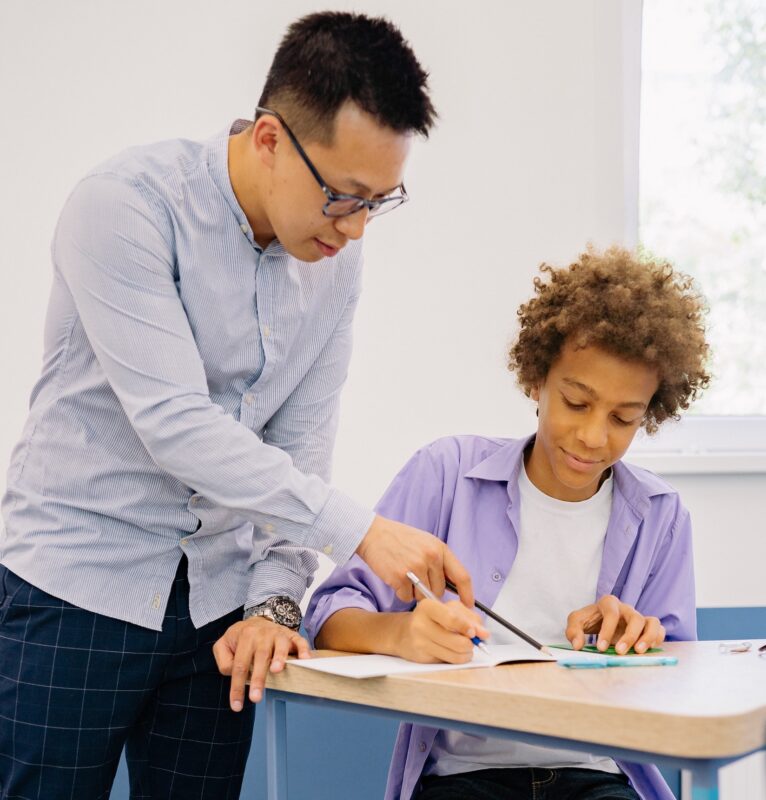
For many students with differing abilities, assistive technology provides a bridge to overcome barriers to participation and progress in school. Read more >>
Request an Appointment
English: 650.688.3625
Medi-Cal: 650.688.3650

For many students with differing abilities, assistive technology provides a bridge to overcome barriers to participation and progress in school. Read more >>

Assistive Technology Apps and Extensions for Struggling Students
Students with ADHD and learning disabilities may benefit significantly from assistive technology like the following apps, browser extensions, and tools. Read more >>

The Pros and Cons of Educational Labels
Educational labeling was first introduced as a way of meeting students’ needs. For instance, a child who was labeled as “gifted” might move up in the curriculum, while a child with dyslexia might need to slow down or even repeat Read more >>

Supporting Self-Advocacy and Success in Student Learning [downloadable]
Students with learning disabilities must be able to advocate effectively for themselves. Beginning in the early years and continuing throughout their school lives, students with learning disabilities must be supported in learning how to self-advocate. Read more >>

Self-Advocacy & Learning Disabilities
Self-advocacy gives students with learning disabilities the confidence to ask for the tools they need to be successful in the real world. The strategy not only benefits children at school, but in explaining their learning disability to friends and family Read more >>

Most people have some idea of what “self-advocacy” is, but it helps to define it. At its heart, self-advocacy is the ability to communicate what your needs are. Read more >>

How Schools Can Help Overloaded Teens
Teenagers need 8 to 10 hours of sleep each night to be at their best, but few get anywhere near that amount. That’s often due to factors outside their control, like school hours and homework levels. Many schools have been taking notice Read more >>

Learning a Foreign Language for Students With Learning Challenges
Learning a foreign language can be frustrating for a student with a language-based learning disability. Many of the same elements that may have posed problems in English (letter sounds, decoding, spelling, grammar), can cause difficulties in foreign language learning. Read more >>

3 Tips for Managing a Learning Disability in Adulthood
Support from schools can improve elementary and secondary students’ math, reading, and other language skills. But how can people with learning disabilities prepare for the demands of university or working life? Read more >>

Signs and Symptoms of Learning Disabilities Can Change With Age
Being a child or teen with a learning disability can be challenging and frustrating, especially if the learning disability goes undetected. It is important to understand the symptoms one might experience at different ages and get children and teens the Read more >>
English: 650.326.5530 | Español: 650.688.3650 | Fax: 650.688.3669
English: 650.326.5530
Español: 650.688.3650
Fax: 650.688.3669
English: 650.668.3625 | Español: 650.688.3650 | careteam@testing.chconline.org
English: 650.668.3625
Español: 650.688.3650
careteam@testing.chconline.org
© 2024 Children’s Health Council. All rights reserved.
CHC Palo Alto: 650 Clark Way, Palo Alto, CA 94304 | 650.326.5530
CHC South Bay: 2280 Kenwood Avenue, San Jose, CA 95128 | 408.831.7512
CHC Ravenswood: 1765 E Bayshore Rd, East Palo Alto, CA 94303 | 650.702.2487
CHC Palo Alto:
650 Clark Way, Palo Alto, CA 94304
650.326.5530
CHC South Bay:
2280 Kenwood Avenue, San Jose, CA 95128
408.831.7512
CHC Ravenswood:
1765 E Bayshore Rd, East Palo Alto, CA 94303
650.702.2487